In the past two decades, I’ve been vacation-challenged. The reasons for that are various and have changed over time.
For a while, Rafael and I spent a fair amount of our vacation time visiting our parents in Maryland and New Mexico. My parents’ move to Northern California a decade ago removed the need to travel to the East Coast, but it coincided with my career change from tech to clean energy, which came with a much lower salary — not conducive to taking big trips. Then, there was covid.
I did make it to Cuba and Argentina in the past decade, and I realize I’m extremely privileged to have traveled as much as I have in my life. But the last of my overseas trips was eight years ago, and with friends regularly visiting places like Ireland, Bali, Greece, Italy, Taiwan, Thailand, Japan, Portugal, Abu Dhabi, Botswana, Denmark — to name a few — I’ve felt a bit out of it vacation-wise.
So when a friend invited me to go to Zihuatanejo, Mexico, with her and her sister, I thought it was an opportunity I shouldn’t pass up. Could I afford it? Not really, especially since I’m a consultant and lose income when I take time off work. Did I feel guilty about contributing to climate change by flying? Yes; don’t tell my friend who thinks we should close all airports immediately. Was I concerned about traveling during a global pandemic? Yes, indeed. I don’t want to catch that shit.
But did I need a vacation? Yes. At least I’m not a frequent flyer, and when I’m home, I drive an electric car powered by solar. And traveling to a hot place means you do almost everything outdoors, ideal for pandemic travel.
I first visited Mexico in the summer of 1977, when I was 15. I’m sorry to say I had no interest in going, but my mother was taking a group of Midwestern students on a study abroad program to Mexico City for eight weeks, and my choice was to go with her or stay home with my sister and my father. Somehow, that didn’t appeal to me either. So I went. By the end of the eight weeks, I didn’t want to come home.
In my young life up to that point, I’d had the chance to travel around Europe, including multiple trips to Italy, as well as Argentina and Uruguay. But growing up in Central Illinois, far from our nation’s southern border, I had no idea that right next door was a country so different from us — so different from anyplace I’d ever been.
Traveling had already given me just enough perspective to see that there was more than one way to live, more than one way to be. That’s a view that many Americans don’t get. But traveling to Mexico, for someone accustomed to Illinois, was like perspective on steroids.
It wasn’t a luxury vacation in fancy hotels. We stayed with a Mexican family, along with a couple of the students. Men followed us around town when we had a blonde student with us, a completely new and creepy experience for me. I saw a level of poverty I’d only heard of: rows and rows of shacks that looked like they were made of cardboard, and poor country women who’d come to the city seeking work, looking much older than they were from exposure to the elements, begging on the streets with babies in their laps. I’d never experienced anything like that. Nor had I ever experienced the level of pollution I saw there.
We also went to the most amazing anthropology museum I’d ever seen, and we visited parks with names like Chapultepec. We wandered all over the city, met up with friends and writers my mother knew, and took weekend trips to other cities and to the pyramids at Teotihuacan. I could audit an art history class when I felt like it, and an anthropology professor took us to a site that was still being excavated, unknown to tourists. Mostly, I was exposed to a culture far different from any I’d ever known, a culture much more ancient and magical than my own.
I was in a good place in my life then, having just finished my first year at an alternative high school I loved. I didn’t feel like I needed to get away or gain perspective. But maybe I did; the Mexico trip made a deep impression on me and stayed with me for a long time.
Rafael and I started working from home even before covid, and since the pandemic began, our world has shrunk even more. We see friends, I go hiking, and we visit my family in Marin. But we really need to get out more.
Being in Mexico last week reminded me of that.
It took me a few days to settle in, partly due to the heat. I’m a temperature Goldilocks; I hate being cold, but I wilt in the heat. With temperatures regularly hitting 90, I couldn’t go for long walks. But the 15-minute walk to downtown got easier, and our daily dip in the pool or the ocean was the best.
It wasn’t just the heat I had to get used to. It was also going from rarely leaving home to being immersed in a very different culture, one that’s more chaotic and noisy and less organized than what we’re accustomed to. People are also so much friendlier in Mexico, which made it an easy adjustment. My friend’s sister had been there a week before we arrived and had already figured out the super-convenient bus system.
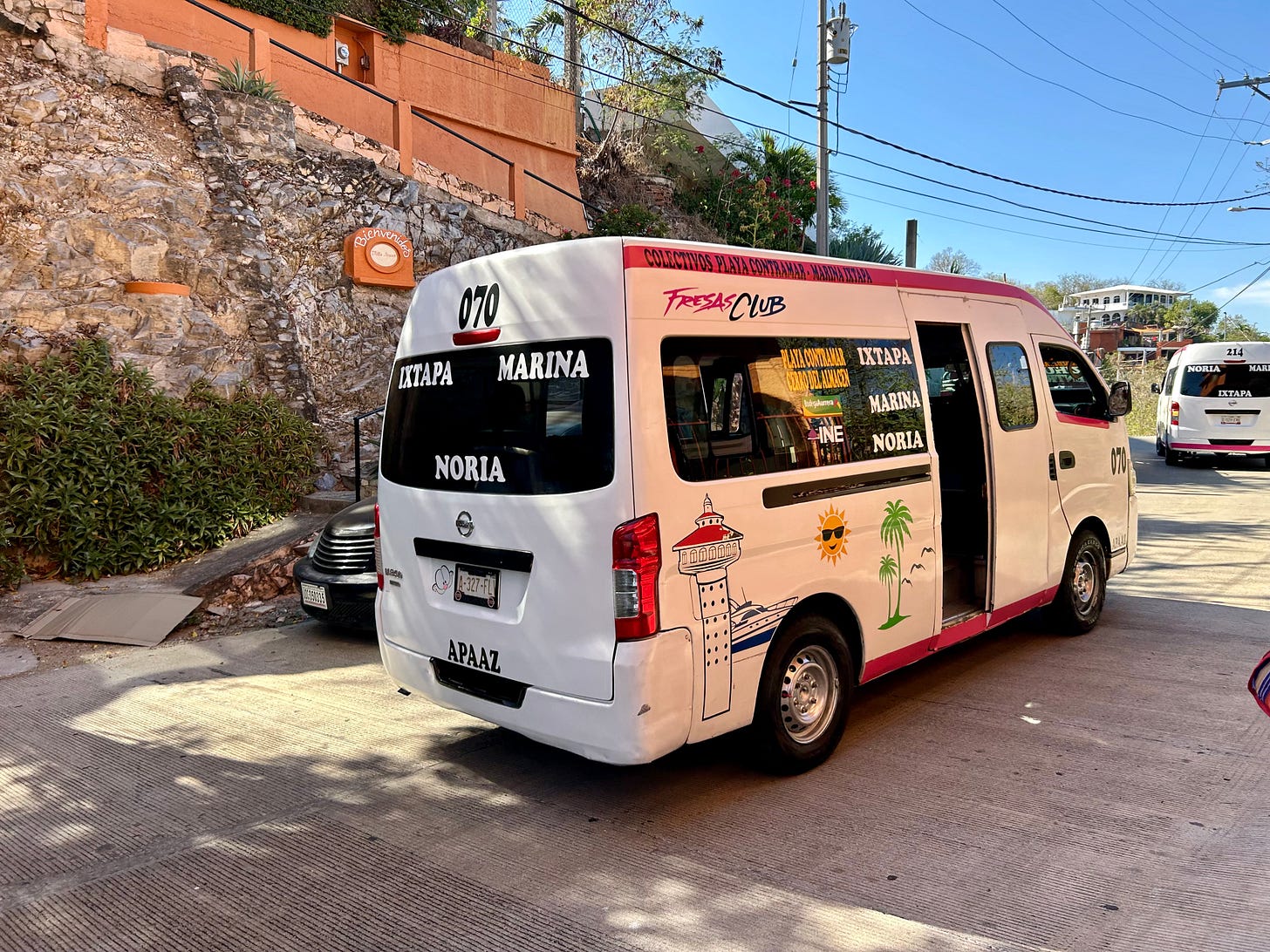
What made me realize I’d finally gotten into vacation mode, though, was when I forgot to do the Wordle one day — for the first time since that “sourdough starter of omicron” became the latest craze.
As it turned out, getting used to being on vacation was a tougher adjustment for me than the culture or the heat. If I were moving to another country, the cultural adjustment would of course take much longer. But for a short weeklong vacation, what was harder was shaking my normal routine, shaking the feeling that I should be doing stuff.
With the high degree of connectivity in today’s world, it’s challenging to get away. The last time I completely disconnected from work on a trip was eight years ago. I do appreciate having internet and cell phone access while traveling, especially for finding restaurants and making plans with friends. But that can make it a bit trickier to really disconnect from our regular life when on vacation.
And disconnecting is one of the greatest benefits of traveling. Being in a different culture contributes to that, and so does being away from our everyday life. We all need to be shaken out of our routines. That’s such a deep human need that it’s one of the four main purposes of religion across cultures that Joseph Campbell identified. In the case of religion, it’s about taking us out of the mundane and instilling a sense of awe. In the case of traveling, we get the added benefit of being reminded that there’s more to life than what we live on a daily basis — even when it comes to the mundane.
In Zihuatanejo, with its focus on beaches and tourism, I didn’t experience the same connection to ancient magic as in Mexico City, which is bursting with physical reminders of past centuries. But in just one week, I got a much-needed break from my normal life and all its difficulties. Not everyone gets a break like this, and I hadn’t had one for a very long time. I miss it already.

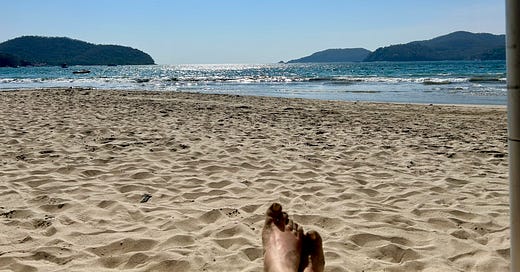


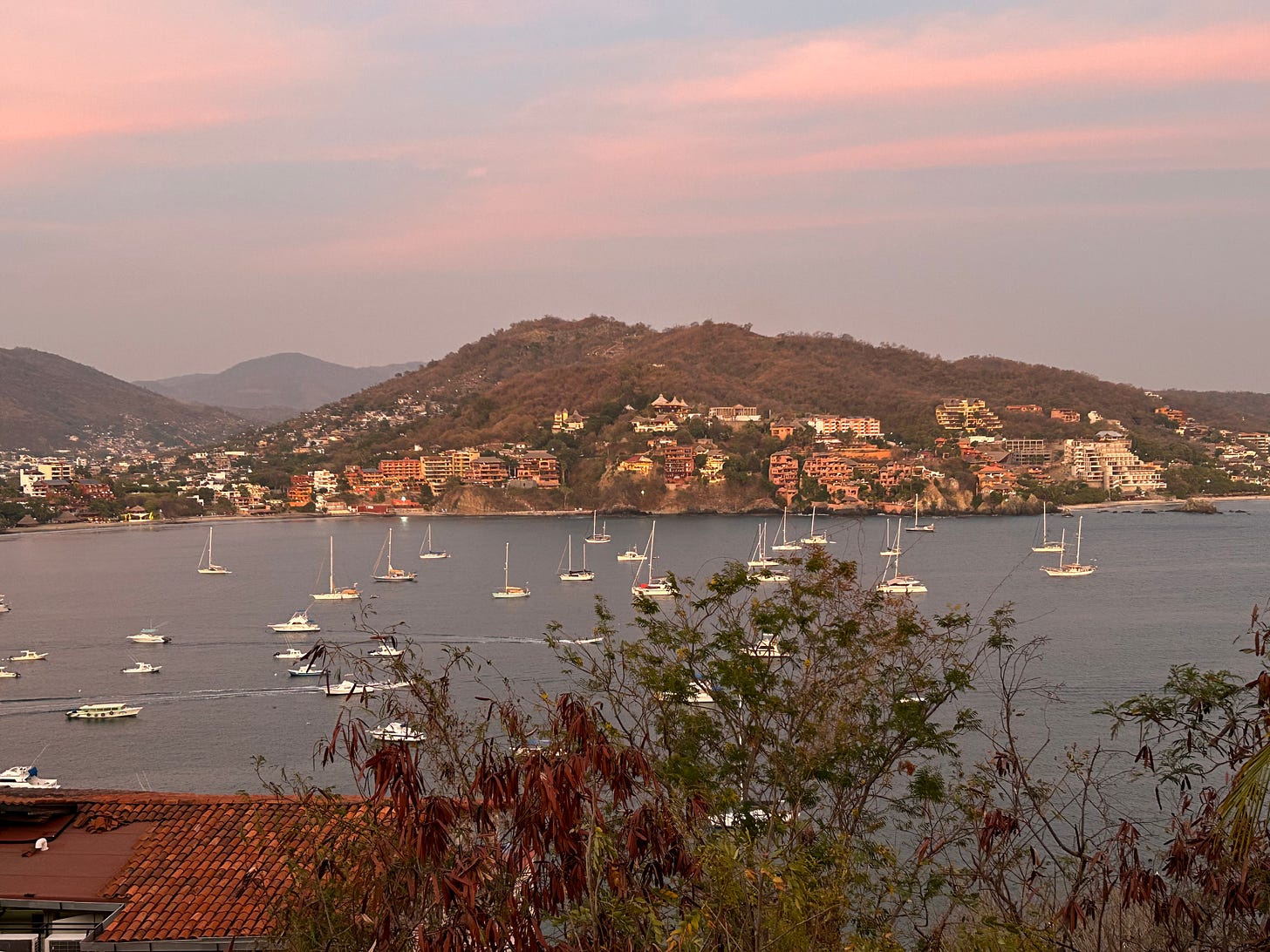

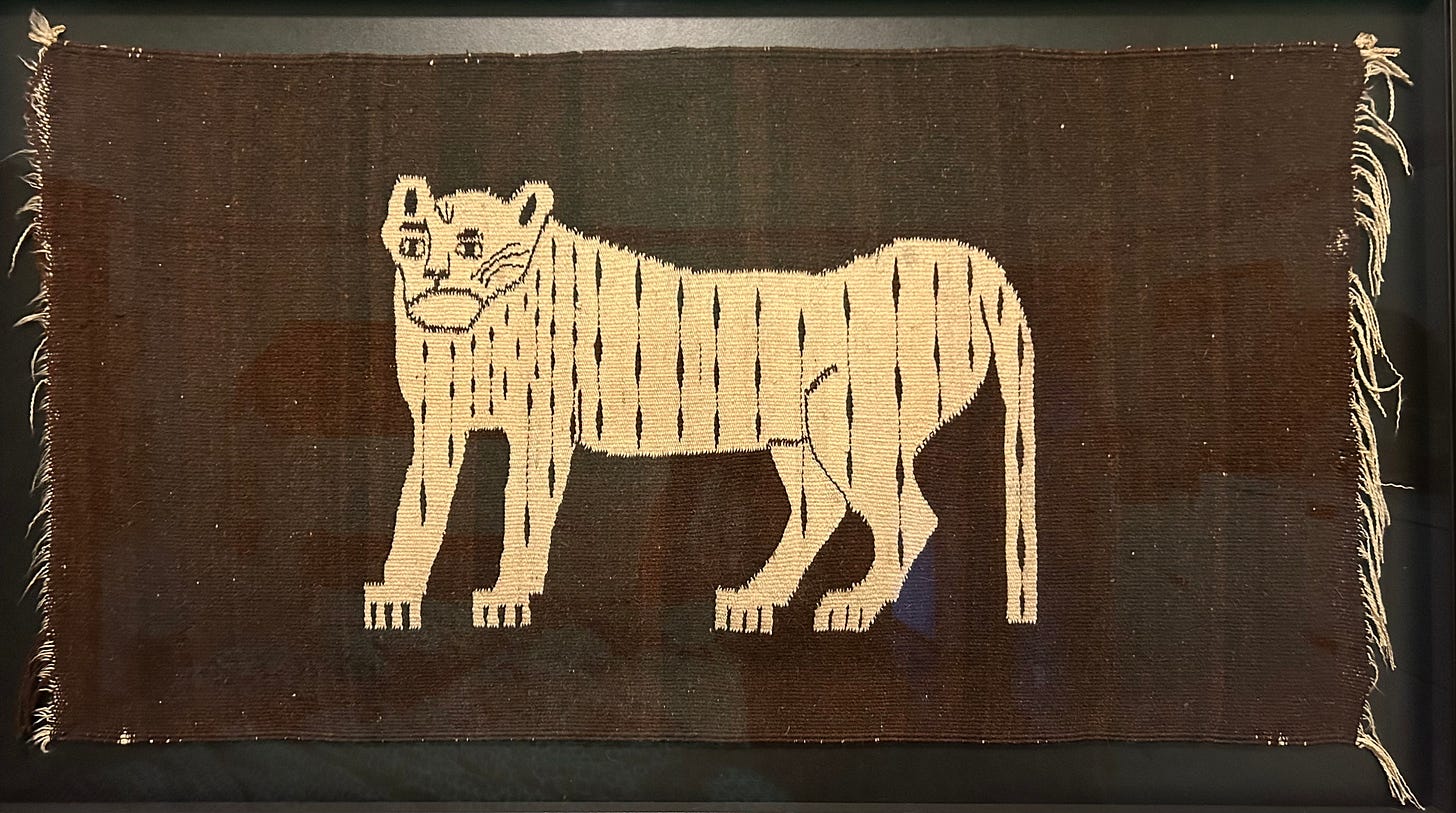

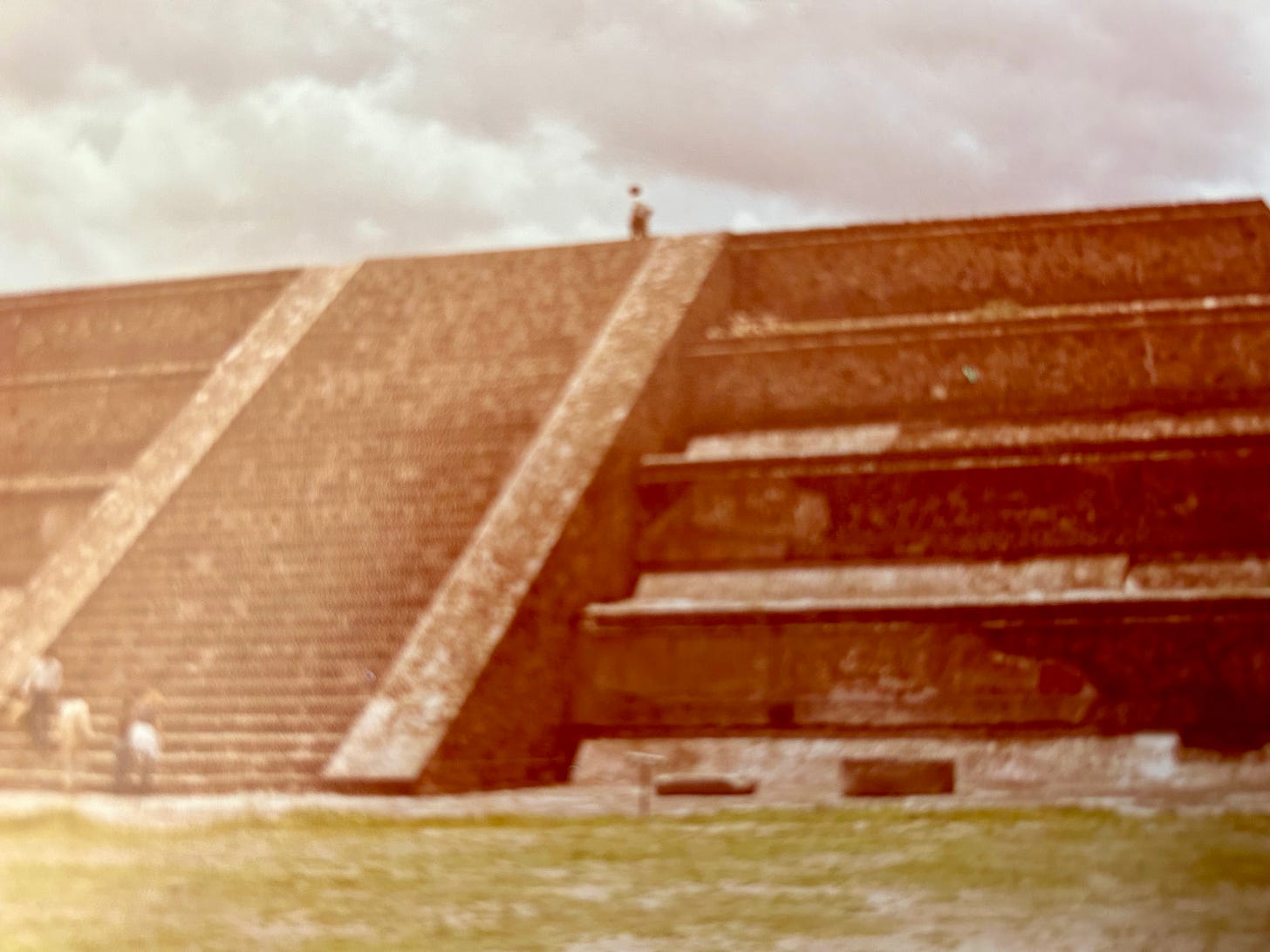
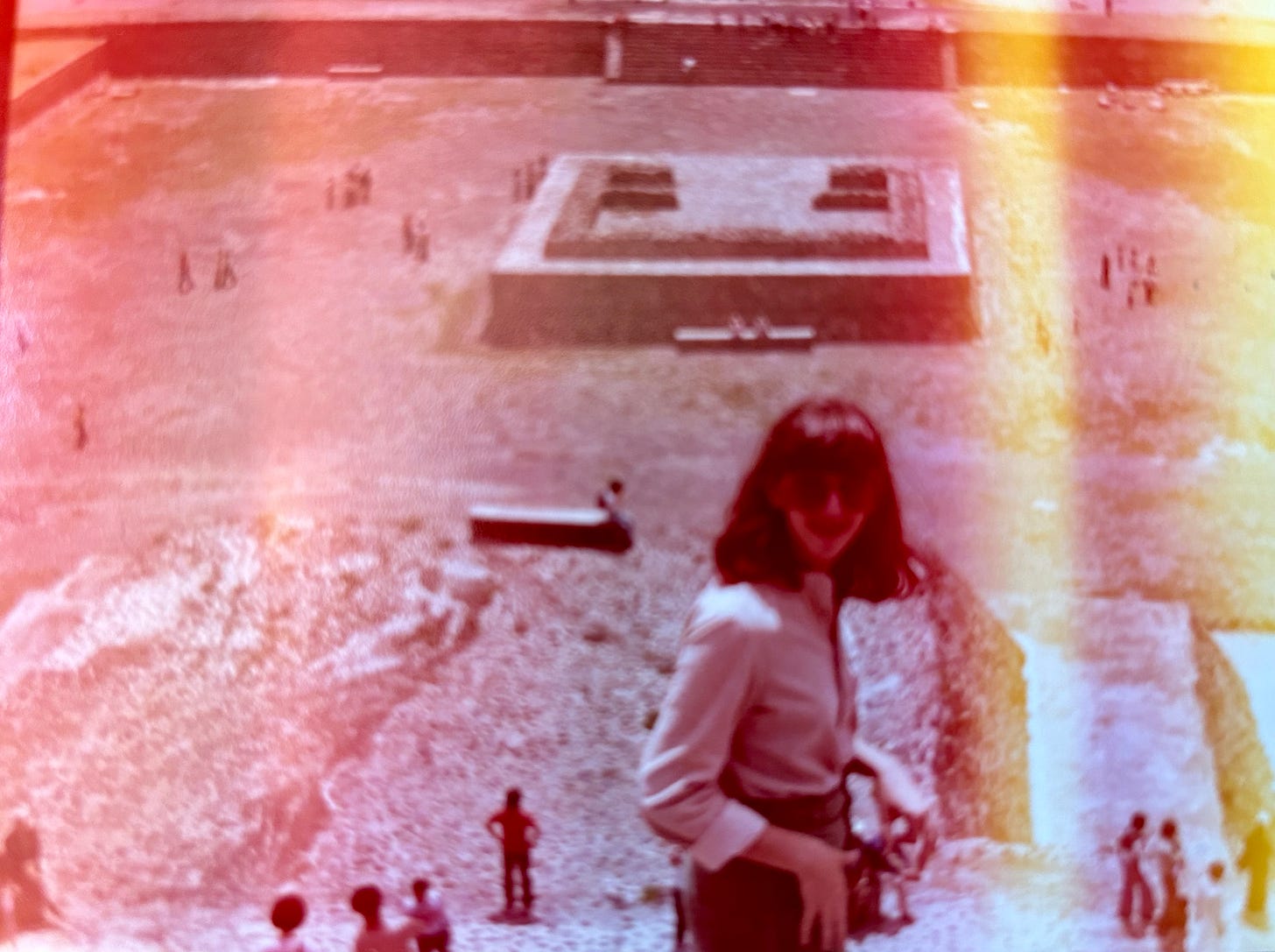
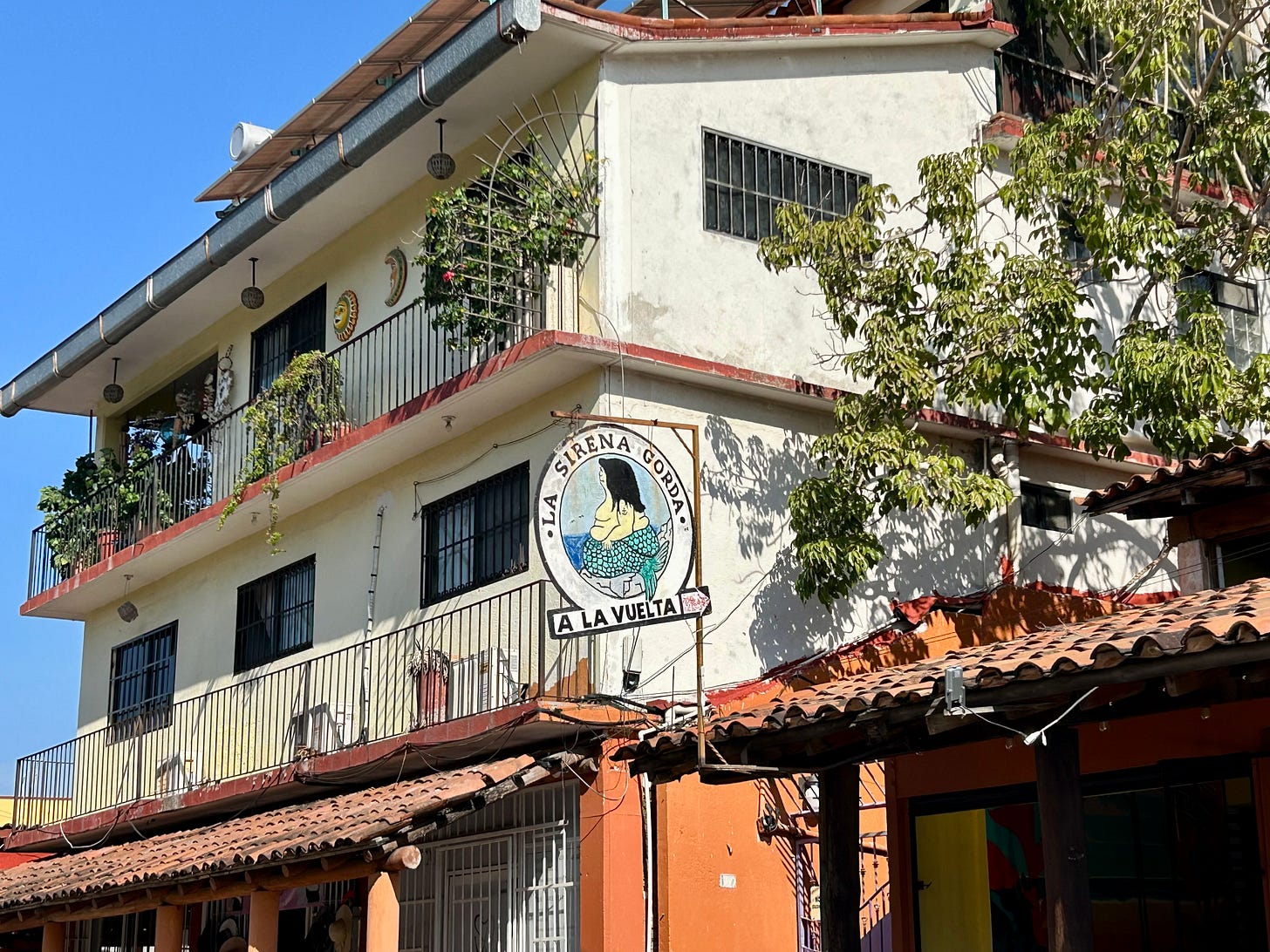
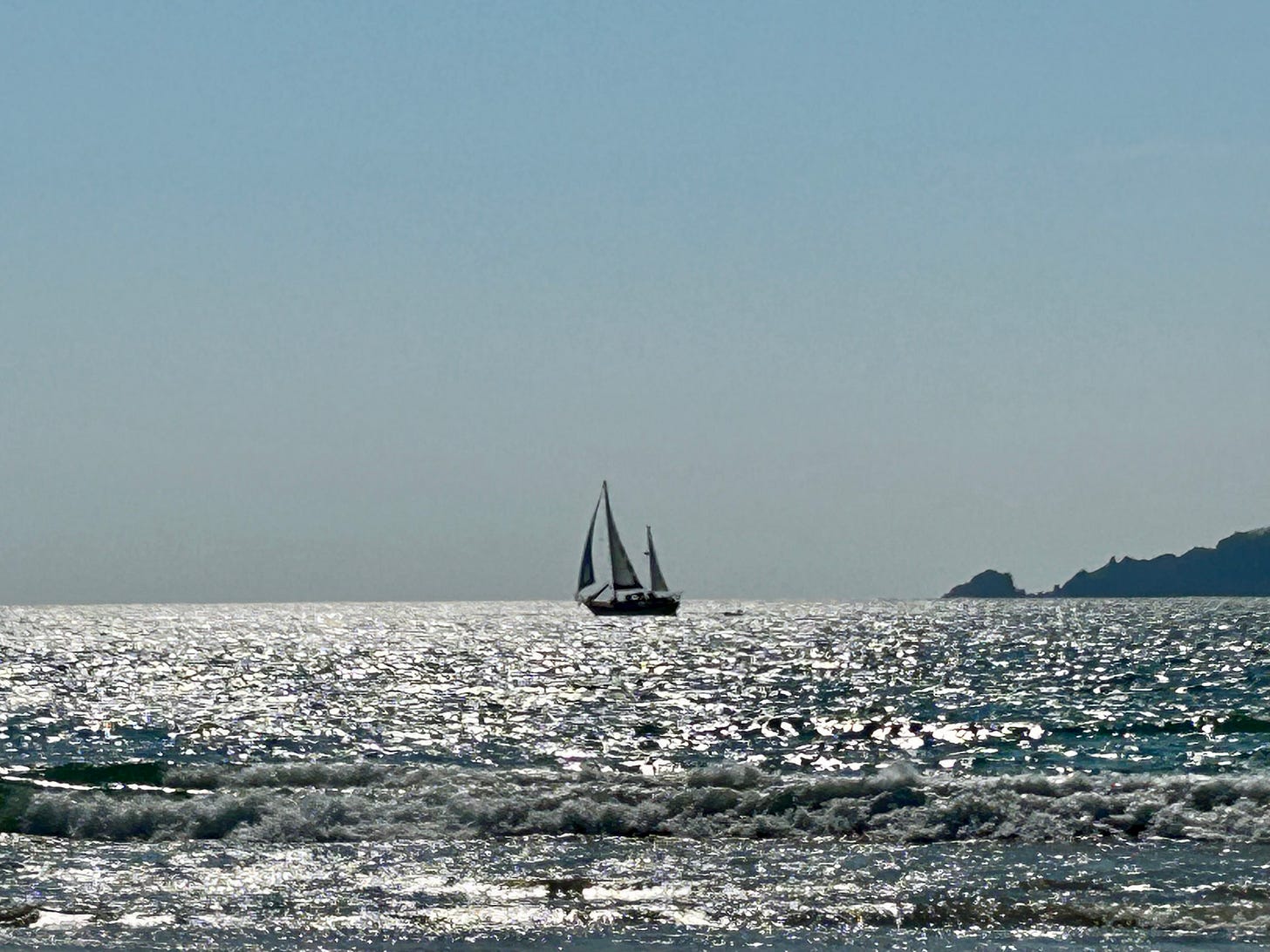
Welcome home!
Confronting the mundane routines we tend to fit into is... challenging. There's a great movie, Aniara, in which the "mundane" becomes a horrific norm for thousands of inhabitants as their damaged craft simply drifts to nowhere. Some of them form cults, others strive to bear children, and still others exercise domination of their fellow humans--all as a a means of confronting the vast emptiness all around them (and infecting them). Well, that ain't no vacation! But they need one! Anywhoozle, I recommend the movie to all who would wander and wonder. (Aniara. On Amazon Prime, and worth getting a temporary subscription to Max, to see it. Imagine Ingmar Bergman directing The Expanse.)